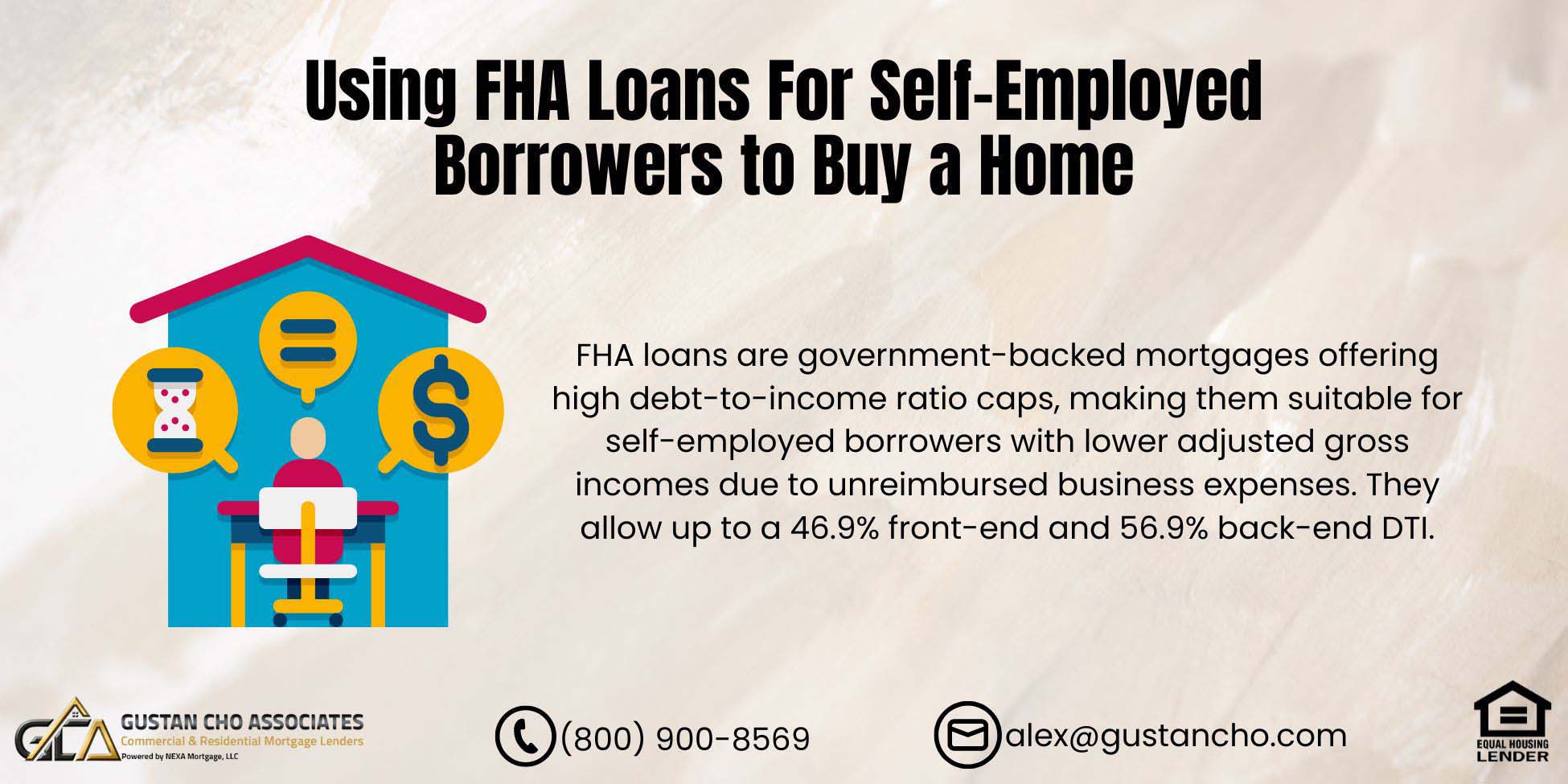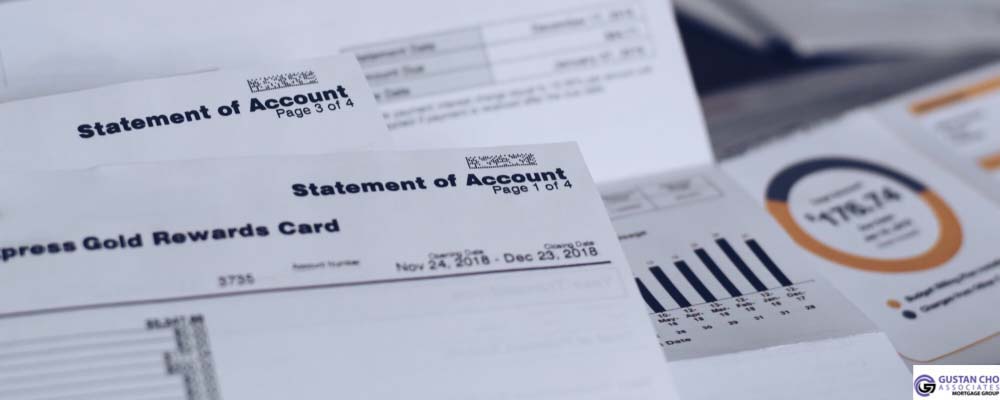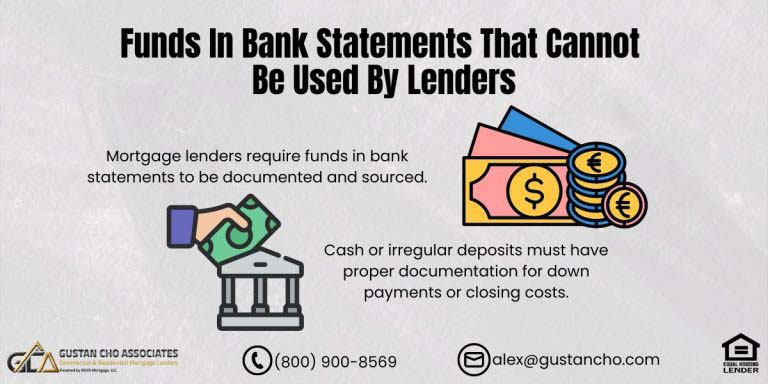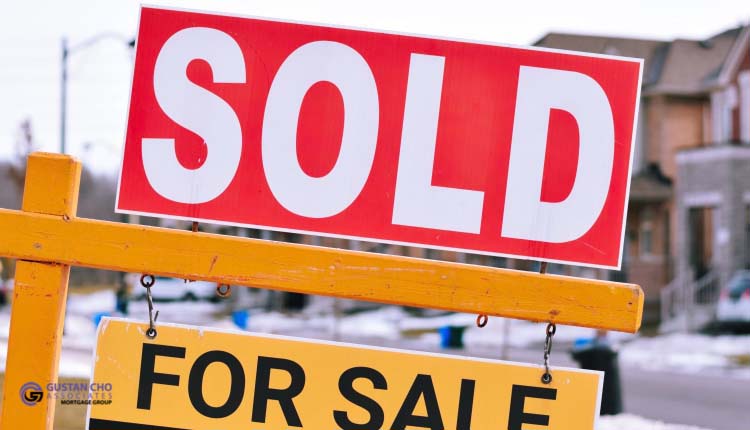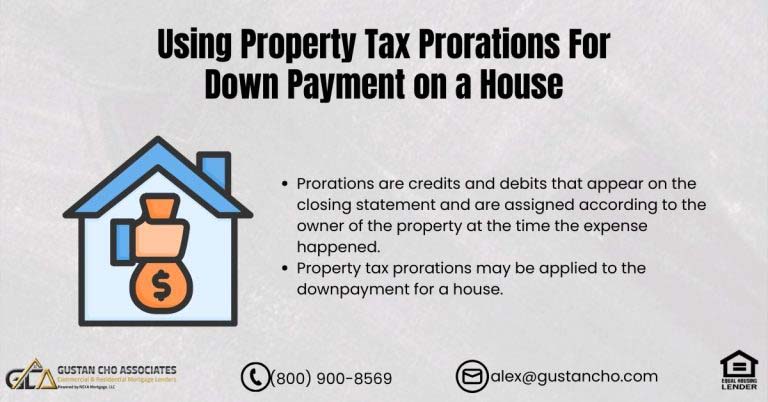In this blog, we will discuss and cover using FHA loans for self-employed borrowers on a home purchase. Using FHA Loans For Self-Employed Borrowers on a home purchase is very popular because of the high debt to income ratio caps. FHA loans allow up to a maximum of a 46.9% front end and 56.9% back end DTI cap to get an approve/eligible per automated underwriting system (AUS). Self-employed homebuyers with substantial unreimbursed business expenses on their income tax returns with lower adjusted gross income can benefit from the high debt-to-income ratio cap of FHA loans. HUD, the parent of FHA, allows borrowers to add multiple non-occupant co-borrowers. In the following paragraphs, we will cover using FHA loans for self-employed borrowers on a home purchase.
Using FHA Loans For Self-Employed Borrowers With Low Down Payment and Non-Occupant Co-Borrowers
To qualify for a 3.5% down payment FHA home purchase loan with non-occupant co-borrowers, the non-occupant co-borrower needs to be related by blood, marriage, or law. HUD, the parent of FHA, allows non-family members to be added as non-occupant co-borrowers. However, if the non-occupant co-borrower is not related by blood, marriage, or law, the main borrower needs to put down 10% versus a 3.5% down payment. Self-employed borrowers need to be self-employed for at least two years. Two years of income tax returns are required. Lenders want to see increasing income and the ability of the self-employed borrower to repay their mortgage for the next two years. The ability to repay will be scrutinized by the mortgage underwriter.
Self-Employed and Looking to Buy a Home? FHA Loans Can Help You Qualify!
Contact us today to learn how we can help you secure financing with flexible requirements.
Using FHA Loans For Self-Employed Borrowers And Qualified Income
Self-employed borrowers often have irregular incomes. To a lender, consistent income is one of the most important factors when qualifying and approving a mortgage borrower. Due to inconsistent income, mortgage underwriters require two years of self-employment history and two years of income tax returns. The adjusted gross income over the past two years will be averaged. The average monthly adjusted gross income will be used as qualified income.
Issues of Self-Employed Borrowers in Qualifying For Government and Conventional Loans
Self-employed borrowers often write off many business expenses. Reimbursed business expenses often save the self-employed individual a lot of money. Unfortunately, this is not good when qualifying for a mortgage. Using FHA loans for self-employed Borrowers is very popular due to the low down payment requirement, high DTI caps, and lower credit score guidelines. Many self-employed borrowers cannot qualify for an FHA loan due to the substantial write-offs they take advantage of. However, there are ways for self-employed borrowers of qualifying for FHA loans which we will discuss in the following paragraphs.
Self-Employed Borrowers Must Meet All HUD Agency Guidelines
Whether you are a self-employed borrower or a full-time W-2 wage earner, you must meet all the minimum HUD Agency Mortgage Guidelines. Here are the minimum HUD Agency Lending Guidelines for self-employed borrowers on FHA loans: Must be self-employed for at least two years in the same business. Must fully document your income and provide the last 2 years’ tax returns. The adjusted gross income will be used and averaged for the past two years. To qualify for a 3.5% down payment FHA loan, the borrower needs a minimum of a 580 credit score.
FHA Loans With 500 Credit Scores
Borrowers with under 580 credit scores and down to a 500 FICO are eligible to qualify for an FHA loan with a 10% down payment. There is a two-year waiting period after the Chapter 7 Bankruptcy discharged date to qualify for an FHA loan. There is a three-year waiting period after a foreclosure, a deed in lieu of foreclosure, or short sale to qualify for an FHA home mortgage.
Borrowers in an active Chapter 13 Bankruptcy repayment plan can qualify for an FHA loan after being in the Chapter 13 repayment plan for at least 12 months with trustee approval via manual underwriting.
There is no waiting period to qualify for an FHA loan after the Chapter 13 Bankruptcy discharged date. However, if the Chapter 13 Bankruptcy discharge is not discharged for at least 24 months, the file needs to be manually underwritten. Outstanding collections and charged-off accounts do not have to be paid off to qualify for FHA loans. Timely payments in the past 12 months is a must to get an approve/eligible per automated underwriting system (AUS).
Documents Required To Start The Mortgage Process on Self-Employed Borrowers
Self-employed borrowers will need to provide proof of ownership of their business. The following documents will be required by the mortgage underwriter: A copy of the business license by a government agency (city, county, a state agency). Listing of the business online. Business listing from other documented sources. The physical commercial address that can be verified. Letter from a CPA verifying the length of time the business has been operating. Last 2 years’ individual tax returns – all schedules. P&L statement for the current year.
Using FHA Loans For Self-Employed Borrowers With Self-Employment Income
Any business owner who has 25% or more shares of the business needs to provide full company business tax returns as well as individual income tax returns for the past two years. Self-employed income over the past two years will be thoroughly scrutinized by the mortgage underwriter. Income needs to be steady or increasing. A decreasing income of more than 20% from a previous year to the next year will be an automatic disqualifier unless there is a good reason for it. Dale Elenteny of Gustan Cho Associates is an expert loan originator who specializes in helping and qualifying self-employed borrowers.
Using FHA Loans For Self-Employed Borrowers With a Lender with No Overlays
Gustan Cho Associates are experts in originating and qualifying self-employed mortgage borrowers. Gustan Cho Associates is a five-star national mortgage company licensed in multiple states with no lender overlays on government and conventional loans. To qualify for a mortgage with a lender with no overlays, please contact us at Gustan Cho Associates at 800-900-8569 or text us for a faster response. Or email us at gcho@gustancho.com. The team at Gustan Cho Associates is available 7 days a week, evenings, weekends, and holidays.
Self-Employed? You Can Still Qualify for an FHA Loan to Buy a Home!
Apply Now And Get recommendations From Loan Experts
Mortgage Options For Self-Employed Borrowers on a Home Purchase
Mortgage for self-employed borrowers has been very difficult since the Great Recession of 2008 and the real estate meltdown. There are two types of loan programs for self-employed borrowers: Bank statement mortgage loans. One year tax returns for self-employed borrowers on government and conventional loans. In the following paragraphs, we will cover and discuss loan programs for self-employed borrowers qualification guidelines.
Bank Statement Mortgage For Self-Employed Borrowers
Gustan Cho Associates launched our bank statement loans for self-employed borrowers. No doc loans became obsolete. Stated Income Loans, once very popular with self-employed borrowers, came to an abrupt end. The great news is that loans for self-employed borrowers are now possible with our new bank statement loans for self-employed borrowers. No tax returns are required with bank statement loan programs.
Using Personal or Business Bank Statements For Self-Employed Borrowers with no Income Tax Returns
Either 12 months of personal or business bank deposits are used to average monthly gross income. If 12 months bank statements are used, then 50% of deposits can be used. If personal bank statements are used, then 100% of deposits can be used. Needs to be 12 months of bank statements from the same bank. No overdrafts in bank statements. 20% down payment on a home purchase. 10% down payment allowed for borrowers with at least a 720 credit score. Gustan Cho Associates is licensed in 48 states and are an expert on bank statement loan programs. The team at Gustan Cho Associates now offers loan programs for self-employed borrowers with our bank statement loan program.
Importance of Income When Qualifying For Mortgage For Self-Employed Borrowers
Income is probably the most important factor when it comes to getting approved for a residential mortgage loan. Borrowers can have perfect credit but with no income verification, there is no way they can qualify for residential mortgage loans. Borrowers can have had prior bad credit or no credit but without income, borrowers will qualify for home loans.
Those with recent bad credit or late payments may have to wait a few months to get credit re-established or correct credit. But as long as they have documented qualified income they can qualify for mortgage depending on credit.
It is not if borrowers will get a mortgage loan approval, but a matter of when they will get the mortgage loan approval. There are various types of income types that we will discuss in the next paragraph for mortgage programs for self-employed borrowers.
Types Of Income That Can Be Used To Qualify For a Mortgage
There are various types of incomes when it comes to mortgage qualification requirements. Cash income does not count as income. All income types need to be documented and reported to the Internal Revenue Service. Lenders will verify tax returns and/or W-2s, and/or 1099’s. Those who are hourly or salaried employees and get W-2 income have no problem when it comes to qualifying for home loans.
Qualifying for a Mortgage With Extended Employment Gaps
Borrowers can also have gaps in employment if they are W-2 employees. Folks who have been unemployed for six months or less need 30 days of paycheck stubs from the new employer to be able to qualify with the income from the new job. Folks who have been unemployed for six or more months need to have been on the new job as a full-time employee for at least six or more months to qualify for a residential mortgage loan. However, borrowers who are 1099 employees or are independent contractors and/or are self-employed normally need two years of tax returns in order to qualify for a mortgage. Mortgage For Self Employed Borrowers is tougher to qualify than W-2 wage earners.
One Year Tax Returns With Freddie Mac
As mentioned earlier, self-employed borrowers normally have a tougher time qualifying for mortgages than W-2 wage earners. In general, Mortgage For Self Employed Borrowers requires to provide two years of tax returns in order for them to be eligible to qualify for mortgage loans. Fannie Mae’s Automated Underwriting System will not issue an approve/eligible per DU FINDINGS unless self-employed borrowers have two years tax returns. However, Freddie Mac’s Automated Underwriting System will allow self-employed borrowers one year’s tax returns per LP FINDINGS if the mortgage loan applicant is a strong mortgage loan applicant. For example, if the mortgage loan applicant has the following:
- Long term as self-employee
- High credit scores
- Good income
- Large down payment
- Substantial in reserves
Looking to Buy a Home as a Self-Employed Borrower? FHA Loans Could Be the Right Fit!
Reach out today to get started and secure your mortgage.
Qualifying for Traditional Mortgages With One-Year of Tax Returns
It is very likely that Freddie Mac will only require one-year tax returns for self-employed borrowers per Automated Underwriting System. However, if the self-employed borrower has low credit scores, prior bad credit, low down payment, little to no reserves, high debt to income ratios, then the one-year tax return requirement will not most likely apply. Qualifying For Mortgage For Self Employed Borrowers is now possible with our bank statement mortgage loans for self-employed borrowers. Self Employed Borrowers who need to qualify for a mortgage with a direct lender with no overlays on government and conventional loans can contact us at Gustan Cho Associates at 800-900-8569 or text us for a faster response. Or email us at gcho@gustancho.com. We are available 7 days a week, on evenings, weekends, and holidays.
FAQ: Using FHA Loans For Self-Employed Borrowers to Buy a Home
- What are FHA loans, and why are they popular among self-employed borrowers? FHA loans are government-backed mortgages offering high debt-to-income ratio caps, making them suitable for self-employed borrowers with lower adjusted gross incomes due to unreimbursed business expenses. They allow up to a 46.9% front-end and 56.9% back-end DTI.
- How can non-occupant co-borrowers help secure an FHA loan? FHA loans allow non-occupant co-borrowers related by blood, marriage, or law to qualify for a 3.5% down payment. However, if the primary borrower is unrelated, they must make a down payment of 10%.
- What are the employment and income documentation requirements for self-employed borrowers? Self-employed borrowers must have been self-employed for at least two years in the same business. They need to provide the last two years’ income tax returns, and lenders will average the adjusted gross income from these returns to determine eligibility.
- What challenges do self-employed borrowers face when applying for FHA loans? Due to their ability to write off many business expenses, self-employed individuals show lower incomes on tax returns, complicating qualifying for a loan. Consistent income and the ability to repay are critical factors evaluated by lenders.
- What are the credit score requirements for an FHA loan? To improve your finances, understand your budget. A standard FHA loan requires a credit score of 580 for a 3.5% down payment. Regularly review and adjust your budget to enhance your financial stability and achieve your goals. A 10% down payment may qualify you for a loan with a credit score as low as 500. Calculate your net income and essential expenses step-by-step to determine your monthly affordability.
- Can self-employed borrowers with recent bankruptcies qualify for FHA loans? If you have a Chapter 13 bankruptcy, you may be eligible for a loan after 12 months with trustee approval. For Chapter 7 bankruptcy, you must wait two years to be eligible. If your Chapter 13 bankruptcy was discharged and active for at least 24 months, there’s no waiting period for a loan. Make sure to frequently examine and modify your budget to maintain financial stability.
- What documents are necessary to start the mortgage process for self-employed borrowers? To apply as a self-employed applicant, you must provide evidence of business ownership, a copy of your business license, the last two years’ individual and business tax returns if you own 25% or more of the business, a profit and loss statement, and a letter from a certified public accountant verifying business operation.
- What alternative mortgage options are available for self-employed borrowers unable to provide traditional income documentation? Gustan Cho Associates offers bank statement mortgage loans, in which either 12 months of personal or business bank statements are used to calculate average monthly gross income, requiring no tax returns.
- What factors contribute to approving FHA loans for self-employed borrowers? Approval factors include the length of self-employment, income stability, credit score, down payment size, and debt-to-income ratios. Alternative documentation, like bank statements, might be accepted for those with strong profiles.
- How can a self-employed borrower start applying for an FHA loan? Self-employed borrowers can contact Gustan Cho Associates to discuss their specific needs and to initiate the pre-approval process, which includes verifying income through documents like tax returns and potentially bank statements for those using alternative documentation methods.
Self-Employed? You Can Still Qualify for an FHA Loan to Buy a Home!
Contact us today to find out how you can use an FHA loan to purchase your home with ease.


